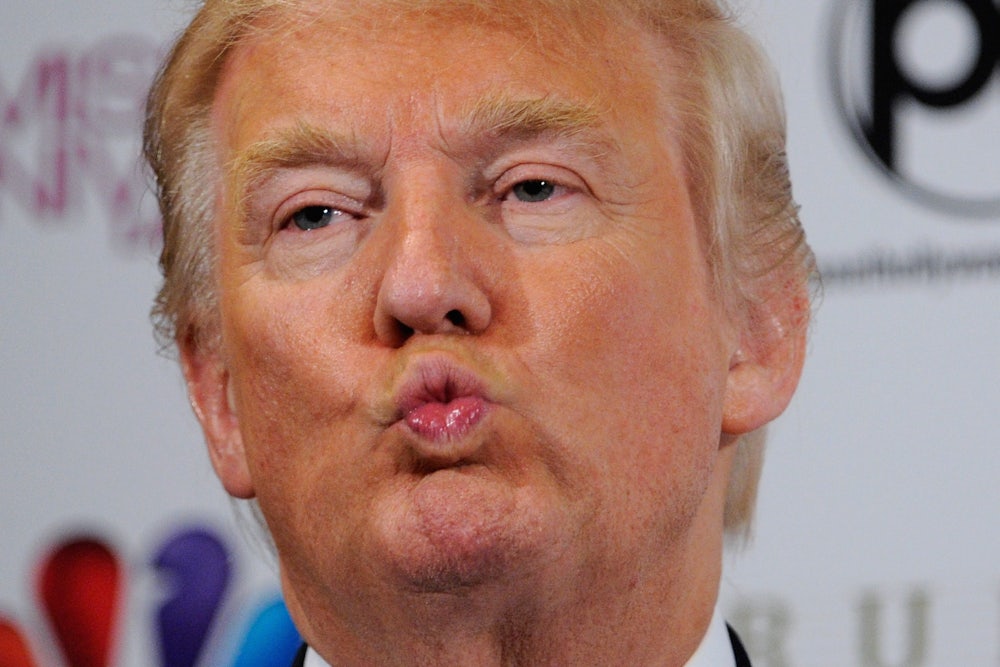By winning the South Carolina primary, Donald Trump demonstrated he can win anywhere.
By coming in second place, well behind Trump and barely (about 1,000 votes with 99 percent reporting) ahead of Ted Cruz, Marco Rubio demonstrated he will have a hard time winning anywhere.
Rubio, and basically the entire Republican Party establishment, marched into South Carolina determined to play up an expected third-place finish as a kind of triumph and a second-place finish as outright victory. Before any networks had called second place, Rubio delivered an exultant speech promising to win the GOP nomination.
There are reasons to credit this as more than just amusingly strained political vaudeville. By breaking out of the pack of also-rans, Rubio forced Jeb Bush out of the race. If he hoovers up nearly all of Bush’s supporters, he stands to eclipse Cruz as the de facto leader of the GOP’s non-Trump faction. If John Kasich follows suit, after finishing below even Bush in South Carolina, Cruz may slip to a distant third. Viewed in that light, Rubio’s performance in South Carolina might genuinely and enduringly change the race.
But this also is the most charitable way to interpret Rubio’s distant second-place finish. Not because these are outlandish assumptions—they aren’t. It’s just that even if everything goes according to plan, Rubio will have proved fairly little in South Carolina.
By inundating Rubio’s campaign with endorsements and money, Republican Party officials have effectively communicated that they’ll attempt to thwart the will of the majority of GOP primary voters who support Trump and Cruz. And yet, despite all of that juice—and as badly as Cruz underperformed—Rubio can’t count on Cruz fading rapidly. He definitely can’t seem to come within spitting distance of Trump anywhere. And on top of all that, he’s yet to endure a concerted Trump onslaught the way Cruz has, and Bush did—and both those candidates were harmed badly.
Though the South Carolina returns drove Bush from the race, it isn’t a foregone conclusion that his supporters will overwhelmingly defect to Rubio. One of the most critical lessons of Iowa and New Hampshire is that Trump draws his support from across the party, including its mainstream. Many Bush supporters will presumably also defect to Kasich, who essentially skipped South Carolina and is pinning his ever-dim hopes on Northern primaries in Michigan and his home state of Ohio in March. Ben Carson’s supporters will likewise scatter, rather than defect to a single candidate in unison (though Cruz stands to be the single largest beneficiary).
Notwithstanding all these inconvenient truths, Rubio will emerge from South Carolina a party favorite and a media darling.
The person with the most to fear from the results is Cruz. South Carolina was supposed to serve as a model for the Super Tuesday states he needs to win—and with the evangelical turnout as overwhelming as it was, he should’ve been able to do better than a dead heat for second, double digits behind Trump.
Had Rubio finished third—ideally a distant third—Cruz could have credibly continued portraying the primary as a two-man race between himself and Trump. But Trump is a popular favorite, and Rubio is an elite favorite. Cruz enjoy neither of those advantages. To the extent that he thrives, it is thanks to the loyalty of conservative ideologues and Christian conservatives (many of whom, again, are still supporting Carson, Rubio, and Trump). If their affinity for Cruz isn’t robust enough to reliably outperform Rubio, his supporters will begin to question the logic of his candidacy. A fading Cruz would have little room to expand his appeal beyond right-wing purists (his concession speech tonight once again played up his “consistent conservative” bona fides), and his campaign would serve barely any purpose other than to deny Rubio a chance to challenge Trump one-on-one.
As time goes on, though, all the effort we expend examining the race for second place so granularly starts to seem like whistling past the graveyard. Trump probably could’ve won Iowa, and arguably should have. He won New Hampshire overwhelmingly. He just won South Carolina overwhelmingly, too, and is poised to do the same thing in Nevada’s caucuses on Tuesday night. This is a waking nightmare for the Republican Party. Their played-up enthusiasm for Rubio can’t disguise it.
